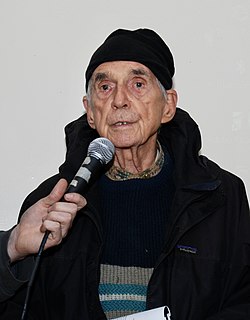A Quote by Eliza Leslie
Ignorant people always suppose that popular writers are wonderfully well-paid - and must be making rapid fortunes - because they neither starve in garrets, nor wear rags - at least in America.
Related Quotes
Of course, let us have peace, we cry, "but at the same time let us have normalcy, let us lose nothing, let our lives stand intact, let us know neither prison nor ill repute nor disruption of ties ... " There is no peace because there are no peacemakers. There are no makers of peace because the making of peace is at least as costly as the making of war - at least as exigent, at least as disruptive, at least as liable to bring disgrace and prison, and death in its wake.
On some positions, cowardice asks the question, is it expedient? And then expedience comes along and asks the question, is it politic? Vanity asks the question, is it popular? Conscience asks the question, is it right? There comes a time when one must take the position that is neither safe nor politic nor popular, but he must do it because conscience tells him it is right.
Cowardice asks the question, is it safe? Expediency asks the question, is it politic? Vanity asks the question, is it popular? But conscience asks the question, is it right? And there comes a time when one must take a position that is neither safe, nor politic, nor popular, but one must take it because it is right.
America's abundance was created not by public sacrifices to the common good, but by the productive genius of free men who pursued their own personal interests and the making of their own private fortunes. They did not starve the people to pay for America's industrialization. They gave the people better jobs, higher wages, and cheaper goods with every new machine they invented, with every scientific discovery or technological advance- and thus the whole country was moving forward and profiting, not suffering, every step of the way.
Where there is Love and Wisdom, there is neither Fear nor Ignorance.
Where there is Patience and Humility, there is neither Anger nor Annoyance.
Where there is Poverty and Joy, there is neither Cupidity nor Avarice.
Where there is Peace and Contemplation, there is neither Care nor Restlessness.
Where there is the Fear of God to guard the dwelling, there no enemy can enter.
Where there is Mercy and Prudence, there is neither Excess nor Harshness.
If we could suppose a great multitude of men to consent to the observation of justice, and other laws of Nature, without a common Power to keep them all in awe; we might as well suppose all mankind to do the same; and then there neither would be nor need to be any civil government or commonwealth at all, because there would be Peace without subjection.
It is evident, from their method of propagation, that a couple of cats, in fifty years, would stock a whole kingdom; and if that religious veneration were still paid them, it would, in twenty more, not only be easier in Egypt to find a god than a man, which Petronius says was the case in some parts of Italy; but the gods must at last entirely starve the men, and leave themselves neither priests nor votaries remaining.
I hated being stuck at home doing the student thing. I always wanted to work. And there's nothing wrong with it. So you can take what you can get. And, you know, this, 'Well, that's beneath me. I have a degree.' Put it aside for a while because reality is what it is. There are a lot of people having to do a lot of things that they think are beneath them right now because McDonald's is not open to make sure you don't starve. That's your job. Your responsibility to make sure you don't starve and your kids don't starve and all the rest of it.

































